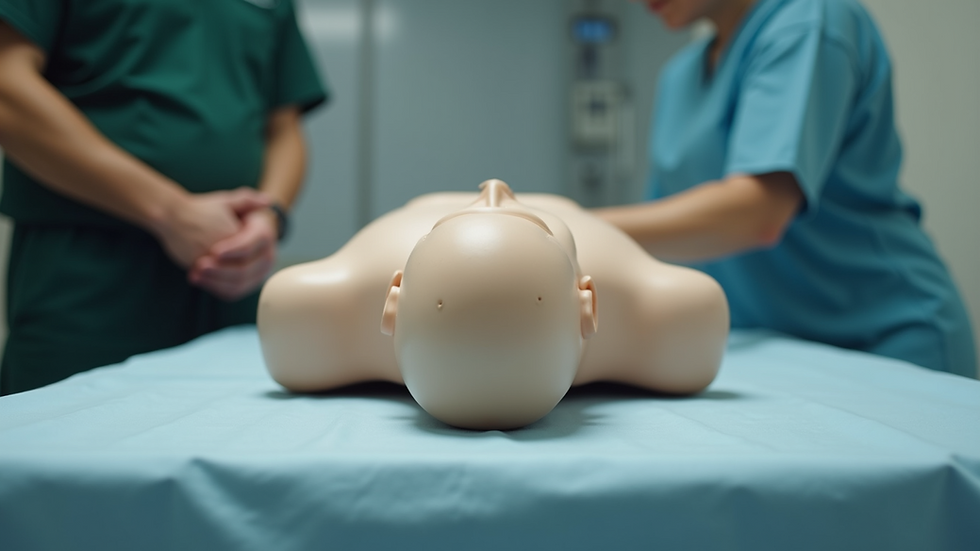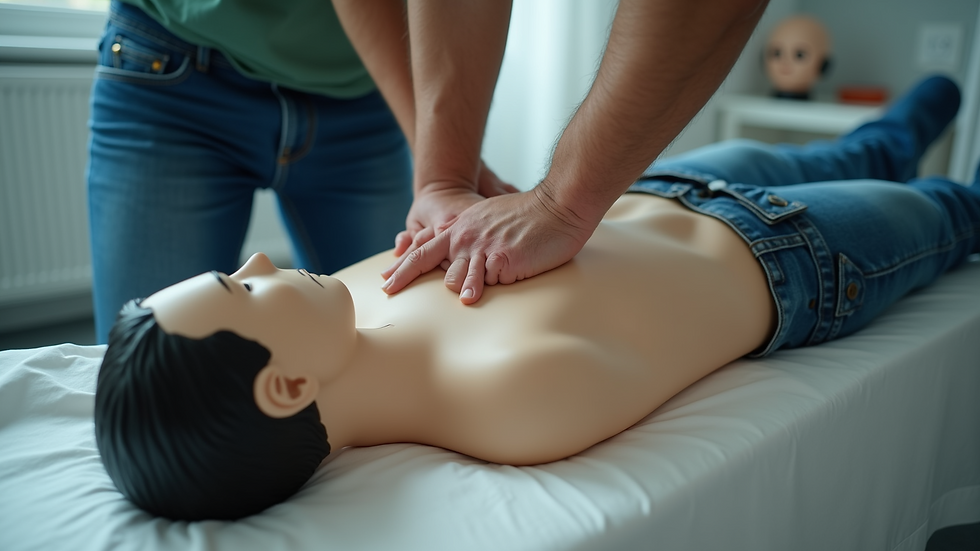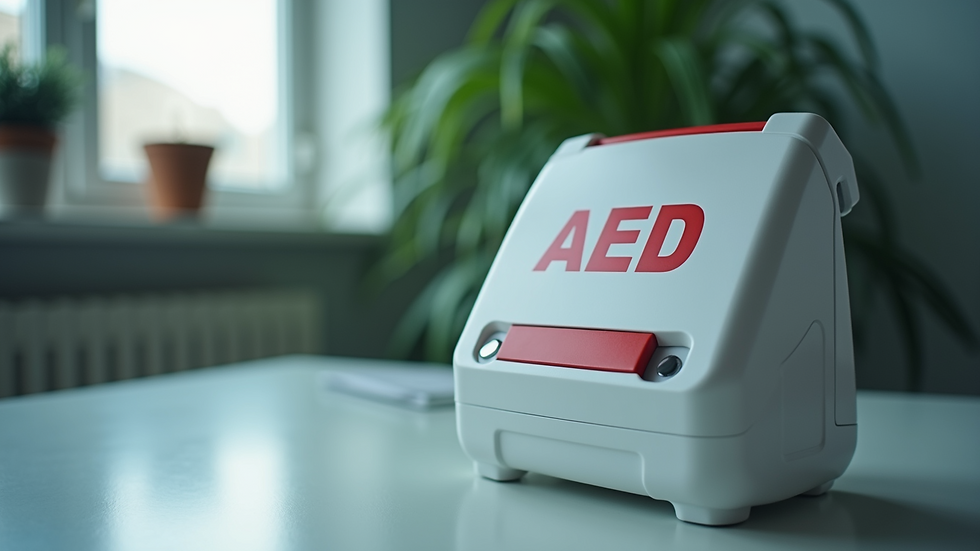American Heart Association Certification: What You Need to Know
- Tomika Grigsby, MBA

- Sep 9, 2025
- 3 min read
Obtaining an American Heart Association certification is a valuable step for anyone interested in emergency cardiovascular care. Whether you are a healthcare professional, a teacher, or simply someone who wants to be prepared in case of an emergency, this certification equips you with essential skills. This article will guide you through the benefits of AHA certification, the process, validity, and how it can make a difference in critical situations.
Understanding AHA Certification Benefits
The AHA certification benefits extend beyond just having a card to show. This certification provides comprehensive training in CPR, AED use, and other lifesaving techniques. Here are some key advantages:
Enhanced Confidence: Knowing how to respond in emergencies boosts your confidence to act quickly and effectively.
Career Advancement: Many healthcare and safety-related jobs require or prefer candidates with AHA certification.
Community Safety: Certified individuals contribute to safer environments at work, school, and home.
Up-to-Date Knowledge: The American Heart Association regularly updates its guidelines, ensuring you learn the most current lifesaving techniques.
For example, a teacher with AHA certification can respond immediately if a student experiences cardiac arrest, potentially saving a life before emergency services arrive.

How to Get Your American Heart Association Certification
Getting certified through the American Heart Association involves a few straightforward steps:
Choose Your Course: The AHA offers various courses such as Basic Life Support (BLS), Heartsaver CPR AED, and Advanced Cardiovascular Life Support (ACLS).
Enroll in a Class: You can find in-person or blended learning options that combine online study with hands-on practice.
Complete the Training: Training includes learning CPR techniques, AED use, and managing choking emergencies.
Pass the Skills Test: Demonstrating your ability to perform CPR and use an AED is required to earn certification.
Receive Your Certification Card: Upon successful completion, you will receive a certification card valid for a specific period.
Many organizations, including hospitals and community centers, offer these courses. You can also find certified instructors through this link.

How Long Is an AHA Certification Valid?
One common question is about the duration of the certification's validity. Typically, an AHA certification is valid for two years from the date of issue. After this period, recertification is necessary to ensure your skills and knowledge remain current.
Why is recertification important?
Updated Guidelines: The American Heart Association updates CPR and emergency cardiovascular care guidelines regularly based on new research.
Skill Retention: Practicing skills periodically helps maintain proficiency.
Compliance: Many employers require up-to-date certification for compliance and safety standards.
Recertification courses are usually shorter and focus on refreshing your skills and knowledge. It is recommended to schedule recertification before your current certification expires to avoid any lapse.
Practical Applications of AHA Certification
The skills learned through AHA certification are applicable in many real-life scenarios:
Workplace Emergencies: In offices, factories, or retail environments, certified employees can provide immediate assistance during cardiac events.
Schools and Daycares: Staff trained in CPR and AED use can protect children and colleagues.
Sports and Recreation: Coaches and trainers can respond to sudden cardiac arrest or choking incidents.
Home Safety: Family members with certification can act quickly during emergencies involving loved ones.
For instance, a certified lifeguard can perform CPR and use an AED on a swimmer who collapses, significantly increasing the chance of survival.

Tips for Maintaining Your Certification and Skills
To maximize the benefits of your certification, consider these actionable recommendations:
Practice Regularly: Use training mannequins or attend refresher courses to keep your skills sharp.
Stay Informed: Follow updates from the American Heart Association to learn about new guidelines.
Encourage Others: Promote certification within your community or workplace to build a network of trained responders.
Keep Your Card Accessible: Always have your certification card handy, especially if your job requires it.
By staying proactive, you ensure that your ability to save lives remains effective and reliable.
Why Choose American Heart Association Certification?
Choosing the American Heart Association for your certification means you are learning from a trusted and respected organization. The AHA is a leader in cardiovascular care and emergency response training. Their courses are designed by experts and reflect the latest scientific evidence.
Moreover, the certification is widely recognized by employers, healthcare facilities, and regulatory bodies. This recognition can open doors to new job opportunities and professional growth.
If you want to learn more or enroll in a course, visit All Hearts Alive CPR Training Site for detailed information and resources.
By understanding the benefits, process, and importance of maintaining your certification, you can be prepared to make a difference when it matters most. Whether for your career or personal safety, AHA certification is a smart investment in lifesaving skills.



Comments